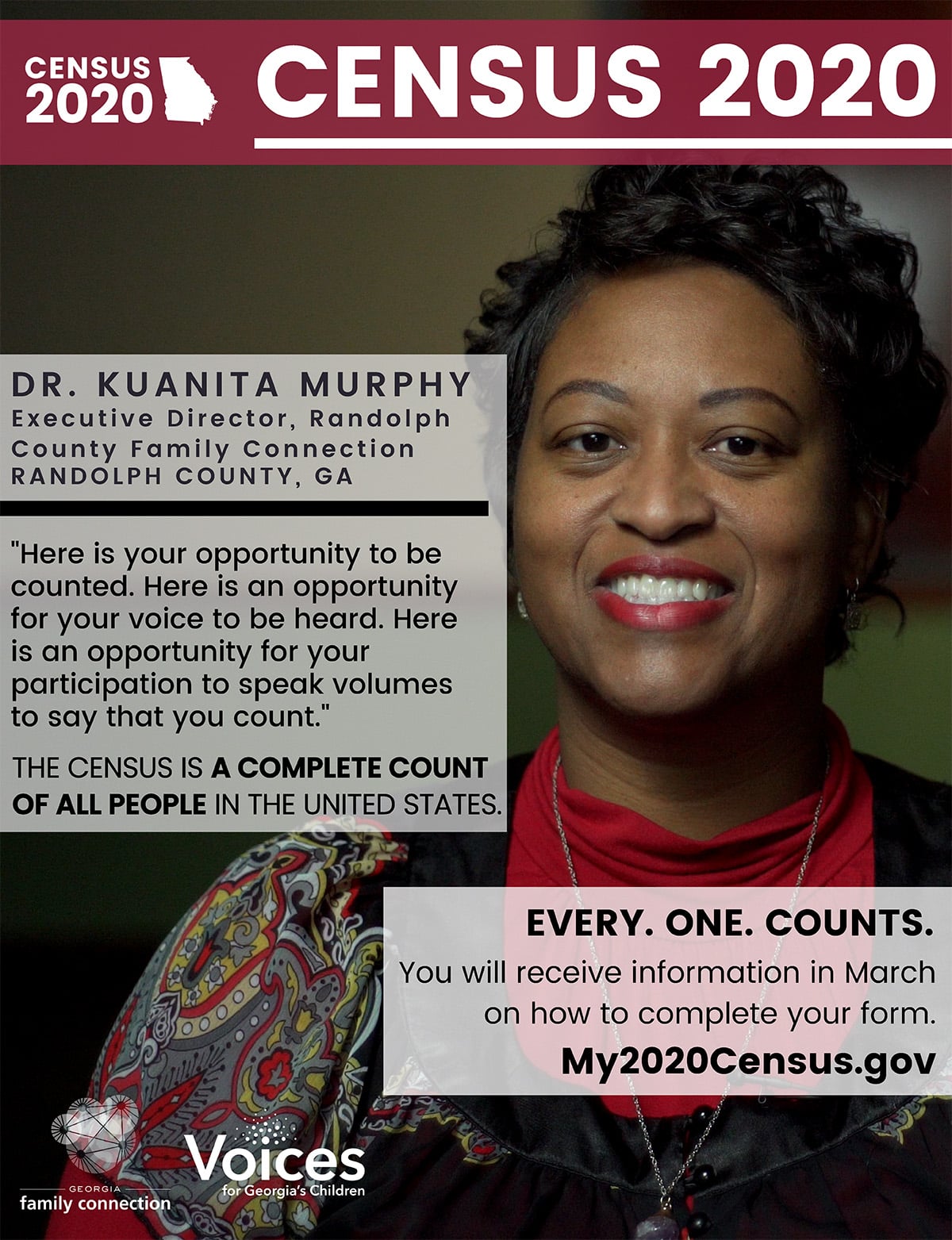Georgia Behind the Nation in 2020 Census Response
Print This Post
by Calista Jahn
It’s been a month since Census Day, and Georgia is lagging behind the rest of the United States in its rates of responses to the decennial 2020 Census. While the COVID-19 pandemic is causing difficulty, hardship, and unprecedented stress across the state, it is essential that we get an accurate count right now.
Consider this: a census count determines funding for programs that Georgians rely on, like hospitals and schools. The count also determines job availability, where a grocery store is built, and how much food and medicine are stocked in stores and pharmacies. The results of the 2020 Census will be crucial to our state’s ability to respond to crises like these in the future.
Based on our counts in the 2010 Census, Georgia received more than $40 billion dollars in federal funding per year. More than half of that funding went to health care services, including Medicaid, Medicare, and PeachCare for Kids, along with community health centers.
That money also impacts how millions of Georgians of all ages access quality foods every day with SNAP, WIC, and the School Breakfast and Lunch programs. It is estimated in 2010 that Georgia had an undercount of close to 1% of our population, which means we missed out on more than $68.6 million per year in critical funding that our state could be using now, during our COVID-19 response. Before the Coronavirus Pandemic hit, it was estimated that Georgia would have an undercount of at least 1.25% in the 2020 Census due to process changes and increased populations of “Hard to Count” populations, particularly young children and people of color.
“The groups who are most at risk of being undercounted are also those who benefit the most from the funding that comes from that count,” said Voices for Georgia’s Children Executive Director Erica Fener Sitkoff. “This pandemic has only emphasized the necessity of obtaining an accurate count so we can ensure that all children get the services they need when it comes to health care and food access.”
To mitigate these challenges, government and community organizations, including Georgia Family Connection Partnership (GaFCP) and Voices for Georgia’s Children, have been working to make sure all people in our state are counted in 2020. For the past year, these two organizations have implemented a statewide outreach plan to reach the populations most at risk of not being counted. Their resources are available at everyonecountsga.org.
Because of the COVID-19 pandemic, the U.S. Census Bureau is changing its original timeline. To keep both the public and its workers safe, and to ensure a fair and accurate count, the Bureau is extending operations for the 2020 Census by four months—until October 31. For the 90,000 Georgia households that have not yet received a Census invitation to respond, a census worker will make that delivery in person in June and July.
However, those households do not—and should not—wait for that visit. They can respond any time either online at my2020census.gov or by phone. Households that don’t respond can expect a census worker to knock on their door beginning in August. To avoid that visit, all households should respond before August 11.
“Communities at a high risk of not being counted in the census are also being hit particularly hard by the coronavirus pandemic,” said GaFCP Executive Director Gaye Smith. “We cannot allow an undercount to further exacerbate disparities and undercut communities’ ability to recover and rebuild over the next decade, so getting a complete count must remain a primary focus. As communities’ planned census activities have been canceled or shifted, we must continue to support them in those efforts, even while we’re all working on other immediate priorities due to the virus.”
The U.S. Census Bureau will contact nearly 14 million households over the next few months via email or text to complete a Household Pulse Survey. This survey is not the 2020 Census. It’s an optional COVID-19 experience-related survey. The 2020 Census is mandatory and asks nine basic questions. Invitation and instructions will not come via email or text.
Bottom line
Your response to the 2020 Census dictates how resources are allocated for the next decade. If the count is not accurate, our state, counties, and cities will have fewer resources and those we do receive risk not being allocated properly. We know we have a future after this pandemic ends. What we don’t know is what that future looks like and when the next crisis will arrive. Having an accurate count in the 2020 Census will ensure our state and communities are ready to respond when that does happen.
Calista (Cali) Jahn is the census coordinator for GaFCP and Voices for Georgia’s Children. If you have any questions about Census 2020, send her an email at cjahn@georgiavoices.org.
